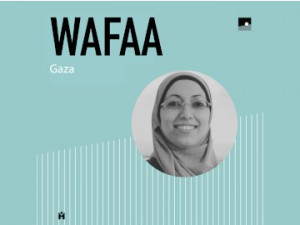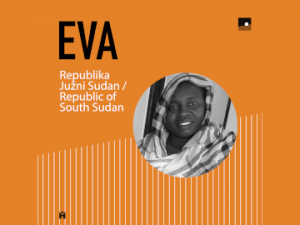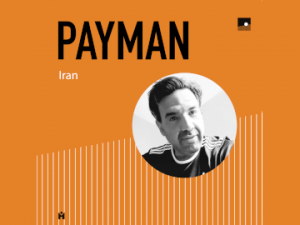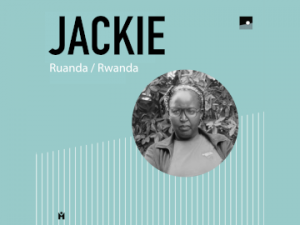Living Peace 13: Letters of Wars and Peace
31. 3. 2025 | Politics
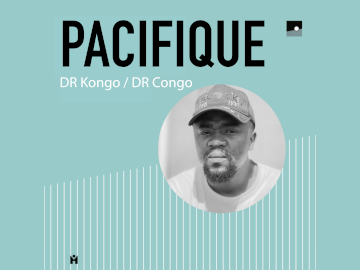
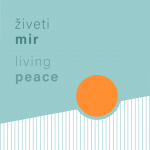 At the end of 2022, we at the Peace Institute, started organizing a series of public events entitled Thinking Peace as a response to the multitude of armed conflicts around the world. Since the world has been spiralling into dangerous global militarization, we wanted to rethink what is war, what is peace, and more importantly how to ensure a stable peace which would not be quickly engulfed in new conflicts and wars.
At the end of 2022, we at the Peace Institute, started organizing a series of public events entitled Thinking Peace as a response to the multitude of armed conflicts around the world. Since the world has been spiralling into dangerous global militarization, we wanted to rethink what is war, what is peace, and more importantly how to ensure a stable peace which would not be quickly engulfed in new conflicts and wars.
We want to expand on the Thinking Peace cycle and add new dimensions to imagining peace. With the help of amazing individuals worldwide, we are beginning a new series of public letters written by people whose lives were interrupted by war or who found themselves in a recent armed conflict. We have titled this series of letters as Living Peace to emphasize how important peace is and that people often only realize this importance when facing the brutality of war. We want to illustrate how people from Palestine, Ukraine, Rwanda, Bosnia and Herzegovina, Croatia, Serbia, Syria, Sudan, Afghanistan, Congo, Yemen and elsewhere think publicly about peace. How do the inhabitants of these regions face wars and military conflicts? What lessons can we learn from their intimate experiences and existential fears?
While opinions of world leaders who justify or even defend wars, dominate today’s media spheres, we want to amplify the voices that defend peace, reject violence and recognize equal rights for all. Having experienced war, they understand why it is essential to live in peace.
The 13th letter we are publishing was written by Pacifique from DR Congo:
But this feeling of calm was broken by tragedy—by the relentless loss of human lives. I couldn’t understand why death visited our city so often, but, like everyone else, my mother encouraged us to keep faith in God. But faith could not outweigh the suffering we endured. Each day and night brought new troubles: robberies, kidnappings, and terrible violence. We had to grow up fast.
***
While our city is rich in minerals, it has become a place of crime and suffering. People built homes on that land without thinking of the risks. In a country with over 450 tribes, it was difficult to keep peace. Wars often started without clear reasons, but there was no time to question it—we just tried to survive. Our community, once vibrant and united, began to fragment under the weight of mistrust and fear.
***
War and suffering don’t have to be our story. We need to share our stories and support each other in finding ways to help. Peace is not just a dream; it’s a goal that takes all of us to reach.
LETTER FROM PACIFIQUE, DR CONGO
 When war breaks out, people often say, “It won’t last; it’s foolish.” And while war may indeed seem foolish, that does not stop it from continuing. Foolishness persists, and we might only notice it when we aren’t thinking about ourselves.
When war breaks out, people often say, “It won’t last; it’s foolish.” And while war may indeed seem foolish, that does not stop it from continuing. Foolishness persists, and we might only notice it when we aren’t thinking about ourselves.
I come from the Democratic Republic of the Congo. My family and I lived in the eastern part of the country, where, in the innocence of childhood, life felt normal. When hardship becomes a part of everyday life, it begins to feel almost normal. I lived without questioning what others faced in different parts of the country and the world. Our daily life went on just as it was, like animals unaware of danger. We played in the sun and shared laughter, completely unaware of the darker realities that existed outside our small, safe world.
But this feeling of calm was broken by tragedy—by the relentless loss of human lives. I couldn’t understand why death visited our city so often, but, like everyone else, my mother encouraged us to keep faith in God. But faith could not outweigh the suffering we endured. Each day and night brought new troubles: robberies, kidnappings, and terrible violence. We had to grow up fast in a place where even our own mother could be objectified, where a woman was often seen as only a vessel for bearing children. We learned to navigate a world where innocence quickly faded, and we had to confront harsh realities.
My family lived in a modest home, and we were lucky to go to school thanks to my mother’s small income. But finishing the school year was often a challenge. To this day, I’ve never heard of another city where children study with the sound of gunfire in the background. My father worked as a teacher in our community, though teachers earned very little. This, too, was just part of our daily miserable life, where education felt like a fragile sanctuary amidst chaos.
While our city is rich in minerals, it has become a place of crime and suffering. People built homes on that land without thinking of the risks. In a country with over 450 tribes, it was difficult to keep peace. Wars often started without clear reasons, but there was no time to question it—we just tried to survive. Our community, once vibrant and united, began to fragment under the weight of mistrust and fear.
We lived like nomads in our own city; today, there would be attacks, and tomorrow, a rebel group might take control. This forced us to keep moving, searching for places that felt even slightly safe. The constant threat of violence loomed over us, shaping our daily lives and altering our sense of belonging. We became accustomed to the idea of fleeing, always on alert, never knowing when our lives would be disrupted again.
When suffering becomes part of life, it begins to shape who we are, even if it still hurts. This story is part of me and has deeply affected how I see the world. I remember our once-peaceful home. Then suddenly, war erupted; rebels took over the airport, and soldiers fought to defend it. Bullets flew from all directions, and we were caught in between. We had to run into the forest, as our homes were no longer safe. I couldn’t tell who was attacking and who was defending. They entered our homes and took lives. Our city became a place of sorrow and emptiness. Death is terrifying; it breaks our hearts and changes how we see the world.
At home, it’s not just war that we fear; there’s also the eruption of Mount Nyiragongo, which has left a deep scar on our hearts. While war is caused by people, the eruption is caused by natural causes. But my question remains: Are we destined to suffer? This is why I wrote my book The Evil of the East, which shares the painful realities I mention here. Through my book, I hope to raise awareness and promote peace. We have become eternal refugees; both war and nature force us to flee, leaving behind our sense of home and community.
I often think about what it’s like to live without hope. We dream of a better future, but what can we do in such endless misery? Children no longer go to school—why study when hope is gone? Just one day of despair leaves memories that last a lifetime. In my city, I remember the words of a friend: “We live each day hoping that tomorrow will be better.” A neighbour once said, “Peace is a dream we must hold onto, even in the hardest times.” These simple words reflect the strength and hope of our community. They remind me that even in the face of suffering, we yearn for a future where peace is real.
Albert Camus once said, “Man is the only creature that refuses to be what it is.” This quote reminds me that even in the darkest times, we have the power to change our lives and work toward peace. Now is the time for us, as a community, to act for peace. War and suffering don’t have to be our story. We need to share our stories and support each other in finding ways to help. Peace is not just a dream; it’s a goal that takes all of us to reach. My book is one small contribution to the fight for peace and understanding. Together, I believe we can break this cycle of violence and ignorance.

